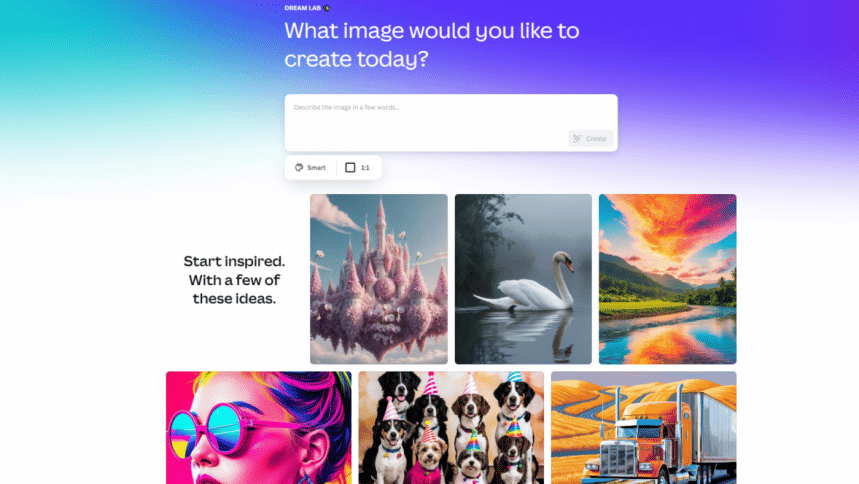Canva releases Dream Lab, new AI image generator

Canva has recently launched Dream Lab, an AI-driven image generation tool that provides users with advanced image generation options directly on the Canva platform on both the web and mobile versions.
Dream Lab generates images based on user-provided descriptions and offers a wide variety of style presets, including Cinematic, 3D Render, Illustration, and Moody. Users can also reference an existing image to influence the generated result, a feature comparable to tools in professional-grade software like Photoshop, as per an article by The Verge.
Dream Lab is based on Leonardo.ai, an AI-powered image generator that Canva acquired earlier this year. According to Canva, Dream Lab introduces multiple style presets and improved rendering for detailed, photographic-style images, setting it apart from the platform's prior image generation tools.
This release is part of Canva's broader 'Magic AI' suite, which includes updated features for text generation, video effects, real-time reactions, and data visualisation tools.
How to access and use Dream Lab
Dream Lab can be accessed from the Canva homepage. In the web version, from the homepage side menu, select 'Dream Lab'. From there, type a description for the desired image, adding details to improve the quality of the result.
You can choose from presets like Bokeh, HDR, or Illustration. Popular aspect ratios, including 1:1, 16:9, and 9:16, are also available for specific use cases. After clicking 'Create', the image is processed and displayed below, where users can download, copy, or apply it directly in a new Canva design.
Free users are limited to 20 lifetime uses of Dream Lab, while Pro, Teams, Nonprofits, and Education accounts receive 500 uses per member monthly.
Dream Lab comes with a few limitations. According to Canva, it is only accessible from Canva's homepage and does not integrate into the main Editor. Output is limited to four images per prompt, and users under 13 are restricted from using the feature for privacy reasons. Automated moderation screens prompts and images for content compliance, and a report function is available for inappropriate outputs, adds Canva in their official announcement.

 For all latest news, follow The Daily Star's Google News channel.
For all latest news, follow The Daily Star's Google News channel. 








Comments